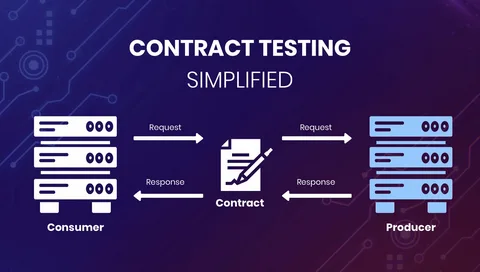Does the VCT Contract Database enhance overall contract management efficiency?
One innovative solution that is gaining traction is the use of vendor contract tracking vct contract database. These databases offer businesses a centralized and organized approach to managing their contracts, providing many benefits. This article explores the significance and advantages of VCT contract databases in streamlining business operations.
Centralized Contract Management
VCT contract database serve as a centralized repository for all vendor contracts, ensuring that crucial documents are easily accessible and well-organized. This centralized approach promotes efficiency and consistency in contract management.
Real-time Visibility and Control
With a VCT contract database, businesses gain real-time visibility. VCT includes insights into contract statuses, renewal dates, and critical terms that empower organizations to manage their contracts, reducing the risk of oversights, missed deadlines, or non-compliance issues.
Automated Alerts and Notifications
VCT databases often come equipped with automated alert systems. These systems can notify stakeholders of approaching contract deadlines, renewals, or compliance requirements.
Risk and Compliance
Ensuring compliance with contractual obligations is a paramount concern for businesses. VCT contract databases are crucial in mitigating risks by providing tools to monitor and enforce compliance. These databases can track key performance indicators, milestones, and other critical elements, reducing the likelihood of contractual disputes or legal issues.
Enhanced Collaboration
Collaboration among different departments and stakeholders is streamlined through VCT contract databases. These platforms often include features that enable seamless communication and collaboration, a more cohesive approach to contract management, which is particularly beneficial in large organizations involving multiple teams in the contract lifecycle.
Efficient Search and Retrieval
The ability to quickly search and retrieve relevant contract information is an advantage of VCT databases. Users can search specific terms, clauses, or contract types, which can help users efficiently locate the required information, saving time and minimizing the risk of errors associated with manual searches.
Scalability and Customization
VCT databases are designed to be scalable, accommodating the evolving needs of businesses as they grow. Additionally, these databases often offer customization options, allowing organizations to tailor the system to their specific requirements.
Cost and Time Savings
By automating repetitive tasks, reducing errors, and streamlining processes, VCT contract databases contribute to cost and time savings. Organizations can allocate resources more efficiently, focusing on strategic initiatives rather than being bogged down by administrative tasks.
FAQs
Q1: What is a Vendor Contract Tracking (VCT) Database?
A: A VCT database is a centralized digital system that facilitates the organization, management, and tracking of vendor contracts within a business.
Q2: Why do businesses need a VCT Database?
A: Businesses use VCT databases to streamline their contract management processes. These databases offer a centralized platform for efficiently organizing, tracking, and managing vendor contracts.
Q3: What features does a typical VCT Database offer?
A: Common features of VCT databases include centralized document storage, real-time contract tracking, automated alerts and notifications, collaboration tools, efficient search and retrieval functions, scalability, and customization options.
Q4: Is a VCT Database suitable for small businesses
A: Yes, VCT databases are scalable and can be adapted to the needs of businesses of all sizes, including small businesses. They offer a cost-effective solution for improving contract management processes, reducing administrative burdens, and ensuring compliance.
Q5: How does a VCT Database contribute to risk mitigation?
A: VCT databases contribute to risk mitigation by providing tools to monitor and enforce compliance with contractual obligations. The automated alerts and real-time visibility features help organizations identify potential risks early on, reducing the likelihood of contractual disputes or legal issues.
Q6: Can a VCT Database be used for contract negotiations?
A: While VCT databases primarily focus on post-signature contract management, some may include collaboration features that facilitate communication and document sharing during the negotiation phase.
Q7: What security measures are in place for VCT Databases?
A: Security measures for VCT databases typically include user authentication, access controls, data encryption in transit and at rest, regular data backups, and compliance with industry-standard security protocols.
Q8: How can businesses ensure a successful implementation of a VCT Database?
A: Successful implementation involves thorough planning, stakeholder engagement, and adequate user training. Defining transparent processes, data migration strategies, and integration requirements is essential before implementing a VCT database.
Conclusion: In the digital transformation era, adopting Vendor Contract Tracking databases is a strategic move for businesses looking to enhance their contract management processes. These databases offer a comprehensive solution, promoting efficiency, transparency, and collaboration. As organizations prioritize effective contract management, VCT databases are valuable in pursuing operational excellence.






